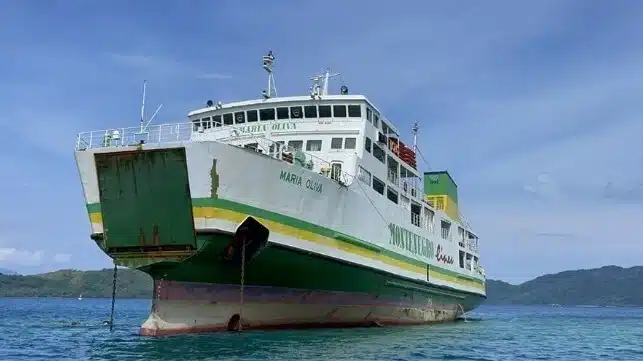Ferry Evacuated After Running Aground in the Central Philippines

The Philippines Coast Guard recently carried out a rescue operation to safely evacuate passengers from an interisland ferry that got stuck on November 11. The vessel, called Maria Oliva, ran aground near Romblon Port, creating some dramatic scenes as passengers were taken safely to shore. Thankfully, all 156 passengers, along with 38 crew members and 26 trucks, were evacuated without any harm.
Maria Oliva, a 371-gross-ton ferry built in Japan in 1973, has been in service in the Philippines since 1997. It operates on a six-hour route in the Romblon region, part of the central Philippines. The ferry is known as a “RoPax” vessel, which means it carries both passengers and vehicles, making it a crucial transport option for many travelers.
The Coast Guard Station in Romblon quickly sent out a rescue team on a rigid-hull inflatable boat. They received additional support from the provincial government of Romblon, which deployed a speedboat, and the local disaster management office, which sent another rescue boat to help.
All passengers were safely brought to Romblon Port, except one dialysis patient and his companion. This patient needed his dialysis machine, which was still on the ferry, so the Coast Guard made sure he was safe while staying on board.
Officials have reported that there are no signs of an oil spill or flooding from the grounded ferry, but they continue to monitor the vessel’s movement carefully. Investigators are also trying to figure out the reason for the grounding to prevent such incidents in the future.
The Maria Oliva is operated by Montenegro Shipping Lines, a major ferry company in the Philippines. This company has 59 vessels in its fleet and serves 39 ports across three islands, providing vital transportation services for both passengers and goods.
The Coast Guard’s quick and effective response highlights their commitment to passenger safety and environmental protection, especially as they work to safely refloat the vessel and assess any risks to the local area.
